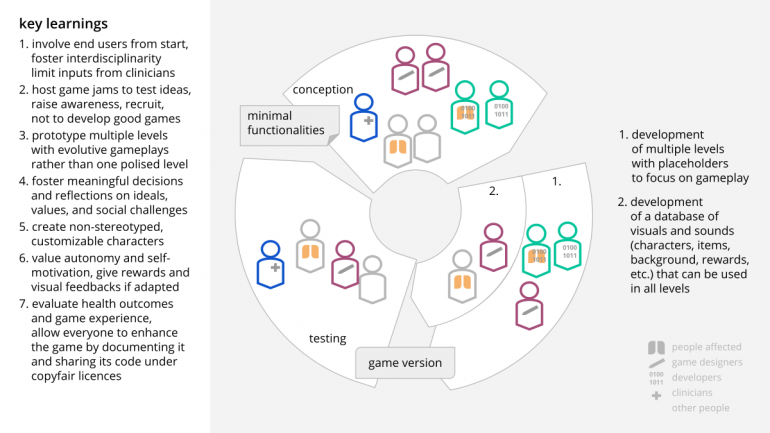
Background: Children affected with cystic fibrosis do respiratory exercises to release the mucus stuck in their lungs.
Objective: The objective of our study was to develop prototypes of digital games that use breath pressure to make this daily physiotherapy more fun.
Methods: We used a participatory design approach and organized short events to invite contributors from different disciplines to develop game prototypes. From the 6 prototypes, 3 were tested by 10 children during a prestudy. The source code of the games, of which 2 continue to be developed, has been released on the internet under fair use licenses.
Results: We discuss 7 themes of importance in designing games for health, combining our experience with a review a posteriori of literature.
Conclusions: This study provides examples of games and their pitfalls as well as recommendations to create games for health in a participatory approach that enables everyone to improve and adapt the work done.
Article published in full open access in JMIR Serious Games. DOI: 10.2196/games.8964.
